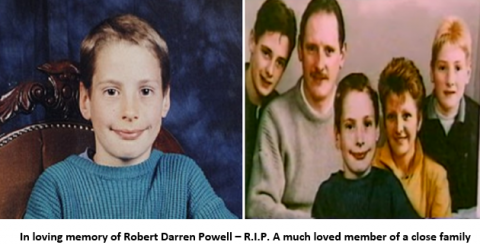Blog
In this series of blogs, HERC takes a multidisciplinary approach to exploring harmful evidence and evidencing harm. We consider the roles of harm and crime, uses and abuses of evidence in criminal justice and criminalisation to de-criminalisation.
** All views in the blogs are the author’s own.
-
Amazon: When a Crime is Not a Crime
In this blog, Jana Macfarlane-Horn considers the role of medical representations of corporate crime through a critical consideration of the company Amazon.
14th April 2022 -
Juries are subject to all kinds of biases when it comes to deciding on a trial
The decision making of jurors can be influenced by a number of factors and bias can enter the jury room from a number of different sources. In this weeks blog, Dr Lee John Curley (The Open University), Dr James Munro (The Open University) and Dr Itiel Dror (UCL) discuss potential biases that might influence jurors and they give some recomendations for fighting juror bias. The original article was published in The Conversation and can be found here: https://theconversation.com/juries-are-subject-to-all-kinds-of-biases-w…
23rd March 2022 -
Primodos: Financial redress is long overdue
In this article, Sharon Hartles reflects upon the events that have unfolded since the publications of the Independent Medicines and Medical Devices Safety Review, First Do No Harm report and the Department of Health and Social Care, Government response to the report of the Independent Medicines and Medical Devices Safety Review. She sheds light on the ongoing debacle over the government's pledge in fulfilling their policy recommendations. Sharon Hartles is a member of the Open University’s Harm and Evidence Research Collaborative.
11th March 2022 -
“It’s as if you don’t exist, you’re dead financially”: The Lived Reality of the Post-Conviction Confiscation (POCA) Punishment
The Proceeds of Crime Act 2002 changed the way in which crimes which are thought to have generated financial gain are prosecuted. As a result, such offences are prosecuted under criminal law as they normally would, with a punishment which is supposed to be proportionate to the gravity of the offence, but this punishment is then followed up with an additional court process which leads to the imposition of a confiscation order based upon the court’s assumed calculation of ‘benefit’, and the subsequent confiscation of any assets within that value. In this article, Craig Fletcher and Becky Clarke begin to expose the lived reality of both the confiscation court process, and how this additional form of punishment is experienced, enabling you to begin to understand the significant gap between confiscation ideology and its lived reality.
11th March 2022 -
In conversation with Southern Criminology
This blog post, by Dr Eleni Dimou, is an updated piece from the British Society of Criminology December Newsletter.
26th January 2022 -
Robot Judgements In The Courtroom: What Do You Think?
In this article, Ben Evans considers the role of artificial intelligence in the courtroom. He compares unexpected research findings with newly published literature to discuss how narrow AI, machine learning systems can produce faster and fairer judgements for communities.
3rd November 2021 -
Unleashing State Hell: Attica 50 Years On
The latest HERC blog comes from Professor Joe Sim of Liverpool John Moores University.
13th September 2021 -
Robbie Powell: Time for Truth, Justice and Accountability
In this article, Sharon Hartles examines Robbie Powell’s Injustice and in doing so unveils Will and Diane’s (Robbie Powell’s parents) relentless pursuit for truth, justice and accountability. Sharon Hartles is a member of the Open University’s Harm and Evidence Research Collaborative.
11th August 2021 -
Primodos, Mesh and Sodium Valproate: Recommendations and the UK Government’s response
In this article, Sharon Hartles examines the UK Government’s response in relation to the implementation of the recommendations set out in the Independent Medicines and Medical Devices Safety Review, First Do No Harm report. She explores how the Government’s response has impacted on those allegedly harmed by the side effects of Primodos, Mesh and Sodium Valproate. Sharon Hartles is a member of the Open University’s Harm and Evidence Research Collaborative.
6th August 2021 -
The sentencing of George Floyd’s killer has lessons for policing in Australia and New Zealand too
In this weeks blog, Dr James Mehigan (University of Canterbury) speaks about the sentencing of the Killer of George Floyd and the lessons that can be learned by the police in Australia and New Zealand. This article was originally published on the conversation: https://theconversation.com/the-sentencing-of-george-floyds-killer-has-…
25th June 2021



